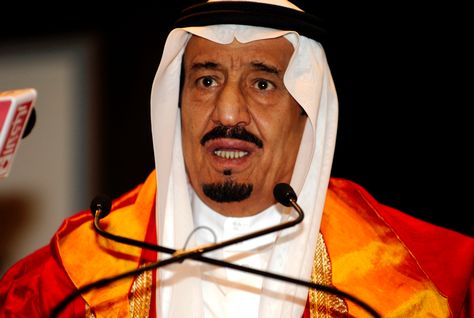Saudi Arabia's King Abdullah has appointed Defence Minister Prince Salman as crown prince and heir apparent, ensuring a smooth succession at a time of tough challenges for the world's biggest oil exporter.
The appointment was announced one day after the burial of Crown Prince and Interior Minister Nayef, who died on Saturday, and means King Abdullah's cautious reforms are likely to be continued.
"Based on the public interest, we have chosen His Royal Highness Prince Salman bin Abdulaziz to be Crown Prince and ordered his appointment as deputy prime minister and defence minister," a royal decree said.
Crown Prince Salman, who is 76-years-old, becomes Abdullah's third heir after the deaths of two elder brothers in the past eight months.

| Advertisement |
He has built a reputation for pragmatism and is likely to swiftly assume a substantial part of the day-to-day running of the kingdom given that King Abdullah is 89.
Prince Ahmed bin Abdulaziz, a younger brother of both Salman and Nayef, was named as the new interior minister after spending several decades as deputy interior minister.
The new crown prince will keep the defence portfolio and has been appointed deputy prime minister to King Abdullah, the royal decree said.
Salman, 76, a half-brother of Abdullah, is likely to continue with gradual social and economic reforms adopted by King Abdullah as well as Saudi Arabia's moderate oil pricing policy, analysts said before his appointment.
"It was widely expected, so it came to confirm an expectation. I think that's an indication of the strength of the element of continuity within the system," said Asaad al-Shamlan, a political science professor in Riyadh.
He is also likely to maintain the kingdom's alliances with Western and Sunni Muslim states.
At stake is the future direction of a country that sits on more than one fifth of the world's proven global oil reserves.
One of the United States' main allies in the Middle East, Saudi Arabia has provided critical intelligence to foil al Qaeda plots, bankrolled pro-Western Arab governments and has supported Washington's attempts to isolate Iran.
The appointment comes at an important moment for Saudi Arabia, birthplace of Islam, as it confronts the impact of last year's Arab uprisings in the context of a regional rivalry with Iran.
"I would predict we will see more Saudi activity abroad, particularly considering what is going on throughout the Arab world today. Prince Salman is pragmatic," said Jamal Khashoggi, a prominent former Saudi newspaper editor. "I think he will not mind dealing with Islamist Arabs like the Muslim Brotherhood."
From 1962 until last year, Prince Salman served as governor of Riyadh, a position that meant he has had more to do with foreign governments than many senior royals.
That role saw him arbitrating disputes between members of the ruling family, putting him at the centre of the kingdom's most important power structure.
He also had to maintain good relations with senior clerics and tribal leaders, meaning he has experience working with all the main groups that count in Saudi policy-making.
In a meeting with the U.S. ambassador in March 2007, described in a cable released by WikiLeaks, Prince Salman said the social and cultural reforms instigated by King Abdullah had to move slowly for fear of a conservative backlash.
He also argued against the introduction of democracy in the kingdom, citing regional and tribal divisions, and told the ambassador that a solution to the Palestinian-Israeli conflict was necessary for Middle East stability.
Prince Ahmed is seen as being unlikely to alter the kingdom's security policies at a time when Saudi Arabia faces a threat from al Qaeda in neighbouring Yemen and unrest among its Shi'ite Muslim minority.
"He was always close to Prince Nayef, but he was more involved in administrative matters, not security. He has a vast experience here and he came from the background of being a governor of Mecca Province," Khashoggi said.









 Search our database of more than 2,700 industry companies
Search our database of more than 2,700 industry companies









